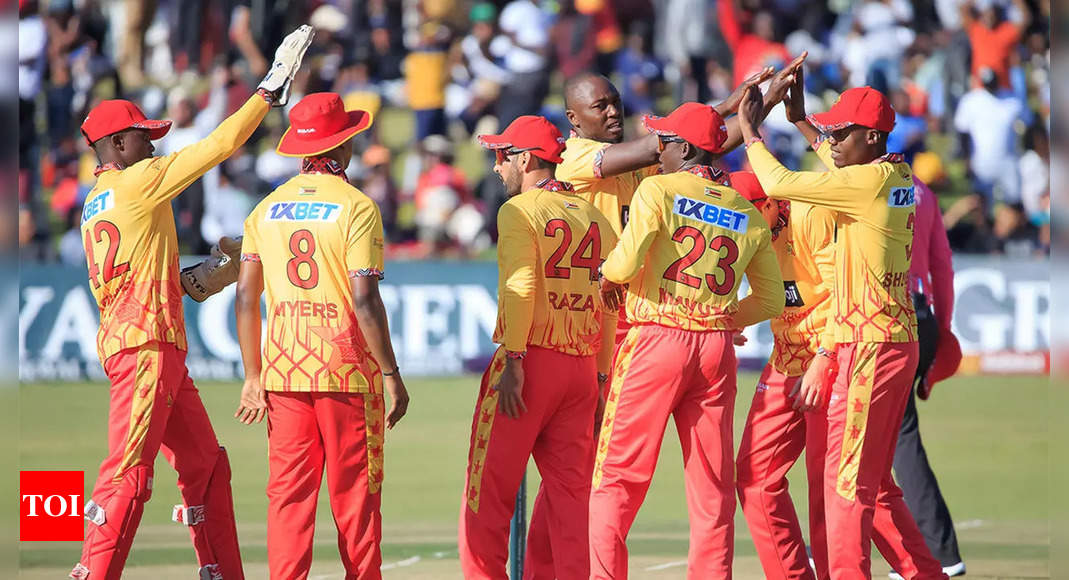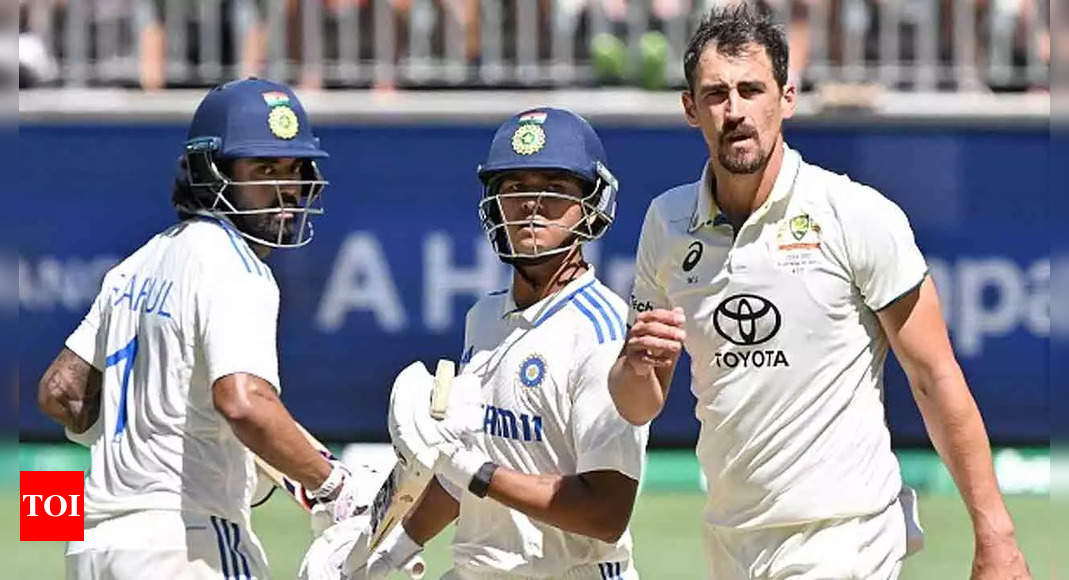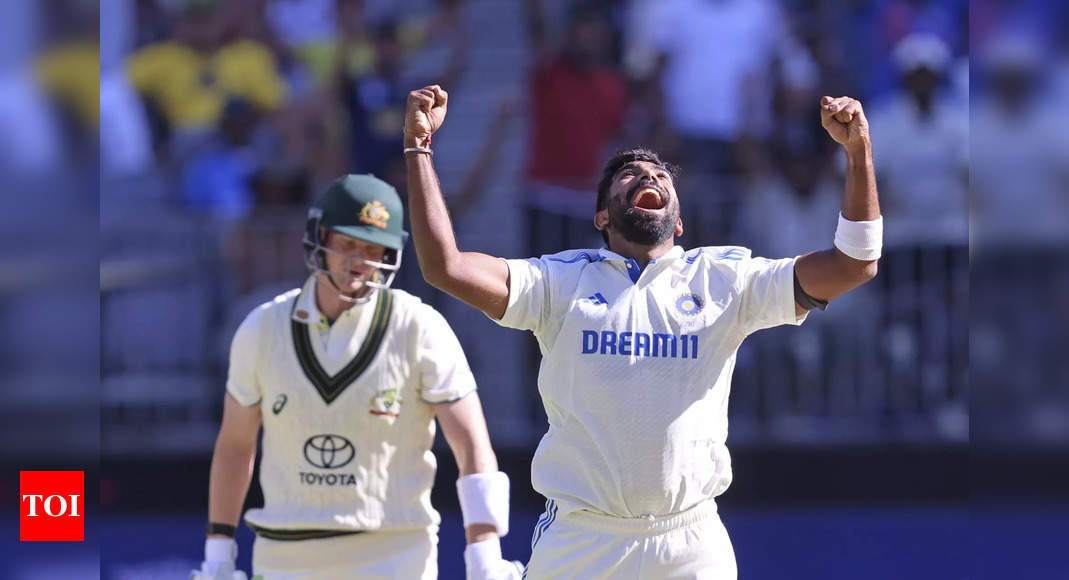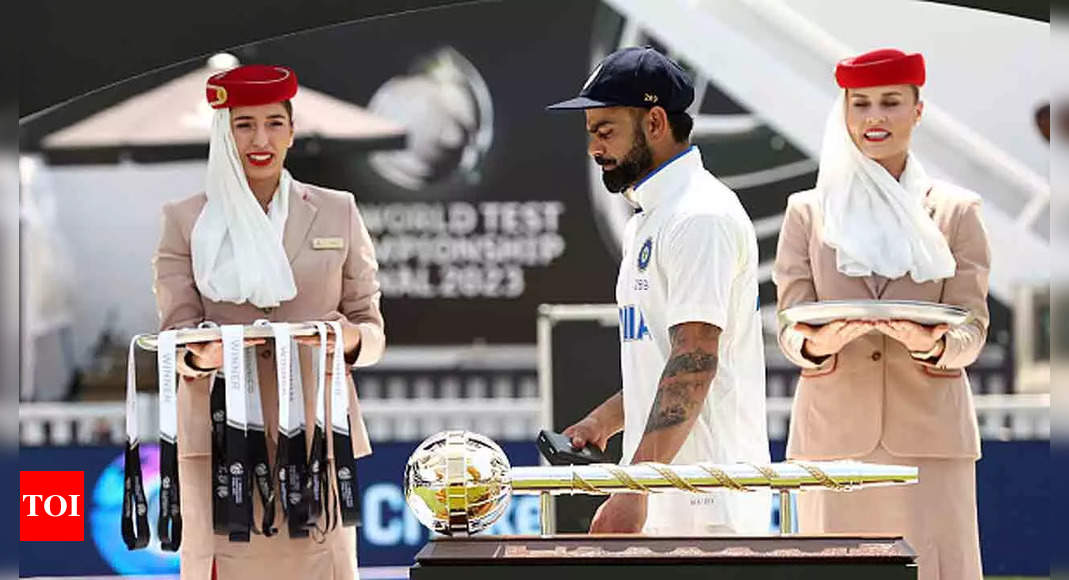
Pulling of an upset of gigantic proportions, minnows Zimbabwe, who had failed to qualify for the recently concluded T20 World Cup, handed India them first T20I defeat of the year.
Despite restricting Zimbabwe to just 115 for nine, India was bowled out for 102 in 19.5 overs, thanks to a determined effort by the Zimbabwean bowlers, led by Tendai Chatara (3/16) and skipper Sikandar Raza (3/25).
India, having recently won the T20 World Cup with a different squad, were expected to easily handle the Zimbabwean but failed to do so, folding for their fifth joint-lowest T20I total.
India’s bowlers, led by leg-spinner Ravi Bishnoi (4/13), performed commendably on a pitch with some extra bounce and carry. Off-spinner Washington Sundar (2/11) also played a pivotal role as Zimbabwe struggled to build meaningful partnerships.
Zimbabwe began their innings briskly, reaching 40 for two in the Powerplay. However, soon after that their batting frailties soon emerged.
Following Kaia’s early dismissal, Wessly Madhevere (21 off 22 balls) and Brian Benett (22 off 15 balls) added 34 runs quickly before Benett was outfoxed by Bishnoi’s googly. Bishnoi repeating the trick later claimed the wickets of Madhevere, Blessing Muzarabani, and Luke Jongwe, reducing Zimbabwe to 74 for three.
As It Happened
Zimbabwe’s middle and lower-order batters seemed to lose their way with their innings punctuated by runouts and soft dismissals. One such moment saw Jonathan Campbell, son of former Zimbabwe captain Alastair Campbell, involved in a mix-up that led to his dismissal. Campbell pushed an Avesh Khan delivery to the covers and set off for a single but changed his mind as his partner Dion Myers crossed the crease, eventually forcing Campbell to walk back.
Despite the setbacks, Zimbabwe’s innings was buoyed by Clive Madande’s 29 not out off 25 balls, pushing their total past the 100-run mark. This resilient effort proved critical, as those extra runs became decisive.
India’s chase started poorly, faltering in the Powerplay itself. Abhishek Sharma, one of the three debutants alongside Riyan Parag and Dhruv Jurel, fell without scoring in the very first over. Sharma’s cross-batted attempt off Brian Benett was caught in the outfield by Wellington Masakadza.
Ruturaj Gaikwad (7) was next, succumbing to a slightly bouncier delivery from Blessing Muzarabani, which was edged to Innocent Kaia at first slip.
Tendai Chatara then delivered a double blow, removing Parag (2) and Rinku Singh (0) within three balls in the fifth over. Parag’s attempt to loft over mid-off went to substitute Brandon Mavuta while Rinku Singh fell to a short-pitched delivery.
Skipper Shubman Gill briefly steadied India with a sensible knock of 31 off 23 balls, including five boundaries.
However, Raza soon disrupted his composure, bowling him out with a skidding delivery that breached Gill’s defense. With India at 84 for eight and soon 86 for nine, the chase seemed all but over.
Avesh Khan (16 off 12) and Washington Sundar (27 off 34) added 23 runs for the eighth wicket, offering some hope, but Avesh’s dismissal—caught by Raza at long-off off Wellington Masakadza’s full-toss—ended any prospects of recovery. India needed 16 runs in the final over, but could muster only two, as Zimbabwe celebrated a famous victory.
Bishnoi’s career-best performance of 4/13 was a highlight for India’s bowling attack, which had otherwise managed to keep Zimbabwe largely under control.
Bishnoi received significant support from Washington Sundar’s two wickets. Zimbabwe’s dissolution from a somewhat promising position of 74 for three to 115 for nine was primarily due to these two spinners, alongside the pace attack’s contributions.
The Indian team will need to regroup quickly with the second match of the series set for Sunday.
The defeat calls for introspection, primarily concerning their batting approach under pressure. Despite the disappointment, the Indian bowlers showed promise and effectiveness, an area they would be keen to capitalize on in the upcoming clashes.







